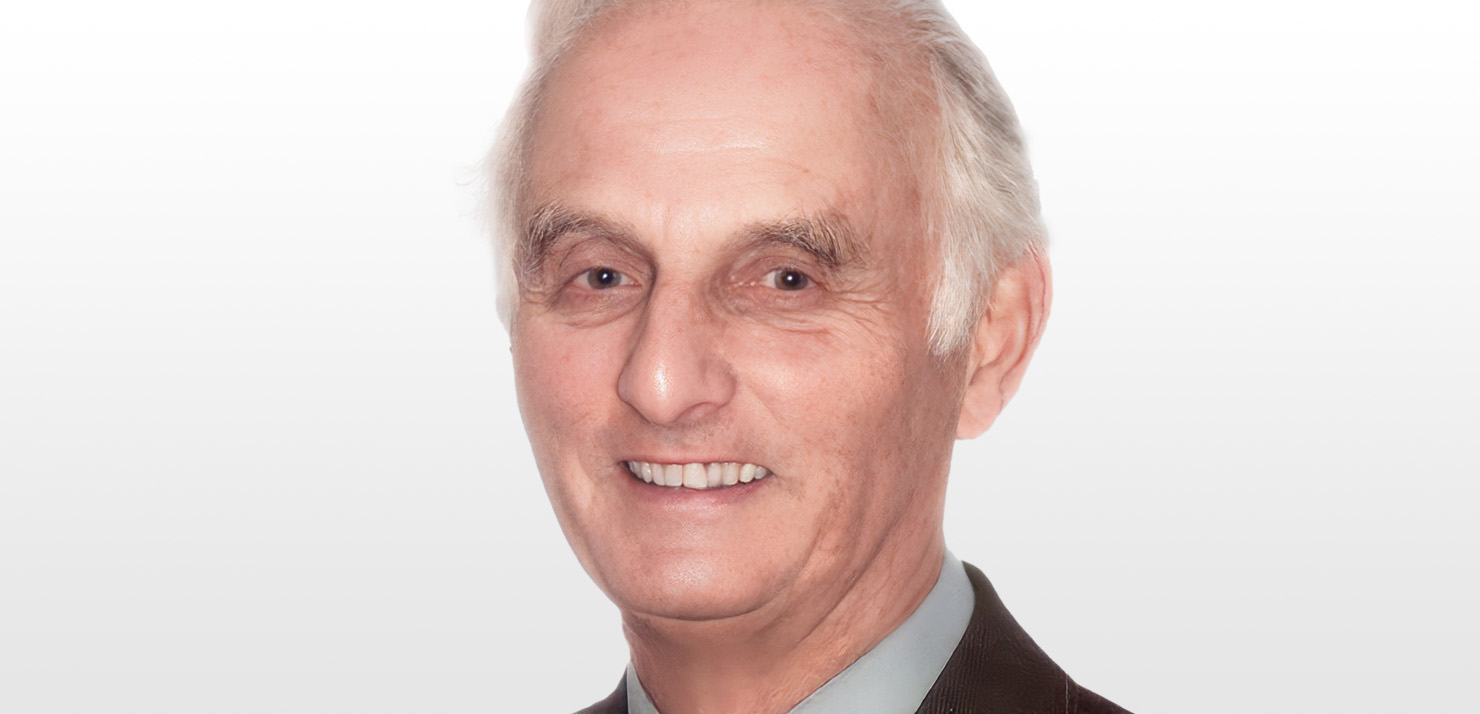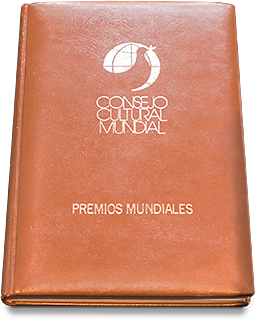
 Albert Einstein World Award of Science 2009
Albert Einstein World Award of Science 2009
Field of Research: Environmental Research
Date: 25 November 2009
Place of Ceremony: Academic Hall
Host Institution: University of Liège
Host Country: Liége, Belgium
Prof. Sir John Houghton is considered one of the most outstanding and effective environmental scientists of his generation. The best examples of Sir John’s work include his key role in the development of the Intergovernmental Panel on Climate Change (IPCC) – a still unique relationship between political policy and scientific rigour, where he led or co-led the Science Working Group of IPCC from 1988 until 2002; his advisory role with the UK Prime Minister; and his establishment of the UK’s Hadley Centre for Climate Prediction and Research, now regarded as a world centre of scientific excellence.
During the 1960s and 1970s, Sir John built up a research group at Oxford University, which developed pioneering techniques for remote sensing of the atmosphere’s temperature structure and composition.
He was Principal Investigator of remote sensing instruments on four of NASA’s Nimbus satellites in the 1970s, measuring globally for the first time the temperature structure from about 10 to 90 km altitude – the region of the stratosphere and mesosphere where most of the atmospheric ozone is present – and enabled detailed studies of the structure and dynamics of the ozone layer. This also led to new developments in our ability to measure and model the radiative transfer of the earth, and in our understanding of the dynamics of the stratosphere.
From the formation of the IPCC in 1988 until 2002, Prof. Houghton was chairman (from 1992 co-chairman with L. G. Meira Filho from Brazil and later with Ding Yihui from China) of its Scientific Assessment Working Group (WGI) and led the Technical Support Unit for WGI. The first scientific assessment report published in 1990 was important in clarifying the science of climate change for a wide audience. It was also a crucial input to the Earth Summit at Rio de Janeiro in 1992 and to the formulation of the Framework Convention on Climate Change (FCCC); it has been said that without such a clear and widely accepted statement of the science of climate change, the FCCC could not have been agreed.
Further assessments were completed in 1992 and 1994, and a second comprehensive assessment at the end of 1995, which has been an important input into the negotiations connected with the implementation of the FCCC and the Kyoto Agreement. The Third Scientific Assessment in 2002 was exceptionally successful. It involved a record number of scientists and achieved unanimous agreement by the scientists and representatives of 99 countries on the strongest statement at that time regarding the attribution of recent global warming to anthropogenic greenhouse gas emissions.
In addition to his work with the IPCC, Sir John has played a significant role in the organisation of climate research, both internationally and nationally. He was Chairman of the Joint Scientific Committee of the World Climate Research Programme (WCRP) from 1981-1984, a period when the main research thrusts of that programme were set for the next ten years and two important experiments were undertaken: the World Ocean Circulation Experiment (WOCE) and the Tropical Ocean Global Atmosphere (TOGA) experiment.
In the UK, during his period (1983-1991) as Director General of the UK Meteorological Office, Prof. Houghton was responsible for setting up, jointly with the Meteorological Office and the (now) UK Department of the Environment, Food and Rural Affairs, the Hadley Centre for Climate Prediction and Research in 1990. This centre is now widely acknowledged to be a world leader in climate research, especially climate modelling and the detection and attribution of climate change using climate models and climate observations. This success is partly due to the uniquely direct relationship that the centre has with British and international scientists and policymakers.
In 1992 the Global Climate Observing System (GCOS) was set up jointly by four international bodies, WMO, IOC, ICSU and UNEP. Prof. Houghton was the first chairman of its Joint Scientific and Technical Committee, defining what is required and describing how a long-term programme of operational observations for climate monitoring and research could be implemented. Two operational worldwide climate networks under GCOS have now been agreed by national meteorological services, one for surface observations and one for the atmosphere.
The Royal Commission on Environmental Pollution in the UK was formed in 1970 and to date has produced 20 in-depth reports on various aspects of pollution and pollution control, which have been influential worldwide in pollution-control policy. Sir John was chairman from 1992-1998 and has overseen the publication of five reports: on the Incineration of Waste; two reports on Transport and the Environment; on the Sustainable Use of Soil; and a report on Environmental Standards.
The Report on Transport and the Environment was extremely timely; it is possibly the largest and certainly the most controversial the Commission has produced. It attempted not only to analyse the problems posed by transport, especially by the growth of road traffic, but also to propose measures which would lead to a sustainable transport policy the next century. Its influence on UK Government policy was clearly noticeable and considerable interest in the report was shown by other countries in the developed world. Because of its importance, the Commission published a follow-up report on transport in 1997, which has provided substantial input for the UK Government’s recent White Paper on Transport.
Prof. Houghton has contributed several textbooks to environmental science. The first edition of ‘The Physics of Atmospheres’ was published by Cambridge University Press (CUP) in 1977, with a third edition in 2002. Together with its Chinese, Japanese and Spanish editions, it continues to be widely used in graduate schools across the world in atmospheric science. With Frederic Taylor and Clive Rodgers, the textbook ‘Remote Sounding of Atmospheres’, was published by CUP in 1984 and remains a formative text in this subject area. Sir John has published over 100 scientific papers on atmospheric spectroscopy, remote sensing, radiative transfer and climate research.
Finally, Sir John reflects to an unusual degree the values behind the Kyoto prize. Throughout his career, Sir John has been strongly motivated to contribute to the improvement of the human condition, nowhere evidenced more strongly than in his concern for the human consequences of anthropogenic climate change. This has been a driving force behind his leadership of the Science Working Group of the Intergovernmental Panel on Climate Change. His deeply spiritual philosophy has been expounded in two books on the relationship between science and religion, and he continues this work as President of the John Ray Initiative.
Brief Biography
Prof. Houghton was born in Dyserth, Wales, United Kingdom. He graduated at the Rhyl Grammar School and Jesus College, Oxford, UK (Degrees –BA, 1951, MA, D Phil, 1955). He received his Knight Bachelor in 1991 and is a Fellow of the Royal Society of London; Member of Academia Europea; Honorary Member of the Royal Meteorological Society; Honorary Member of the American Meteorological Society; Honorary Fellow of the Royal Institute of British Architects; Fellow of the Optical Society of America and Fellow of the Institute of Physics.
Currently he is Honorary Scientist, Hadley Centre for Climate Prediction and Research, Meteorological Office, Bracknell (2002-present); Honorary Scientist, Rutherford Appleton Laboratory (1991-present); Trustee, Shell Foundation (2000-present); and Chairman of the John Ray Initiative (1997-present).
Sir John has combined outstanding scientific accomplishments, as reflected in numerous top awards and honours in meteorology and astronomy from across the globe, acknowledging his outstanding scientific and organizational leadership nationally and worldwide. His accolades include, among others, the Japan Prize; the International Meteorological Organization Prize; the Royal Astronomical Society, Gold Medal and the Global 500 Award, United Nations Environmental Programme.


